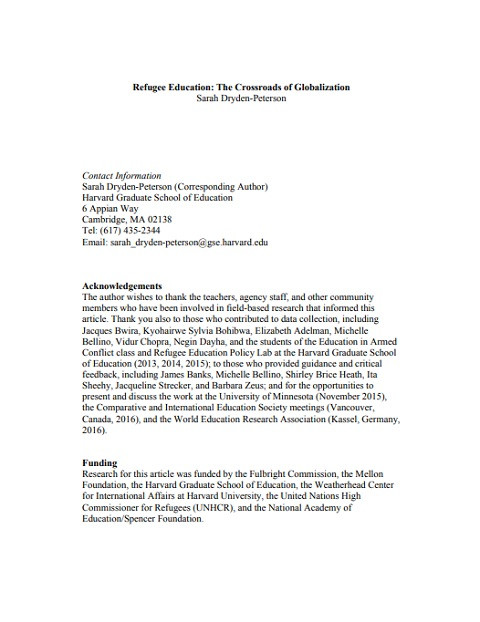
GCED Basic Search Form
Quick Search
Close
Usted está aquí
Resources
Refugee Education: The Crossroads of Globalization (Educational Researcher; vol. 45, no. 9)
Lugar de publicación | Año de publicación | compilación:
Cambridge | 2016 | p. 473-482
Región:
Global

In this article, the author probes a question at the core of comparative education – how to realize the right to education for all and ensure opportunities to use that education for future participation in society. She does so thorough examination of refugee education from World War II to the present, including analysis of an original dataset of documents (n=214) and semi-structured interviews (n=208). The data illuminate how refugee children are caught between the global promise of universal human rights, the definition of citizenship rights within nation-states, and the realization of these sets of rights in everyday practices.
URL del recurso:
Tipo de recurso:
Documentos de investigación / artículos de revistas
Tema:
Cívico / ciudadanía / democracia
Globalización y justicia social / Entendimiento internacional
Nivel de educación:
Educación Primaria
Educación Secundaria
